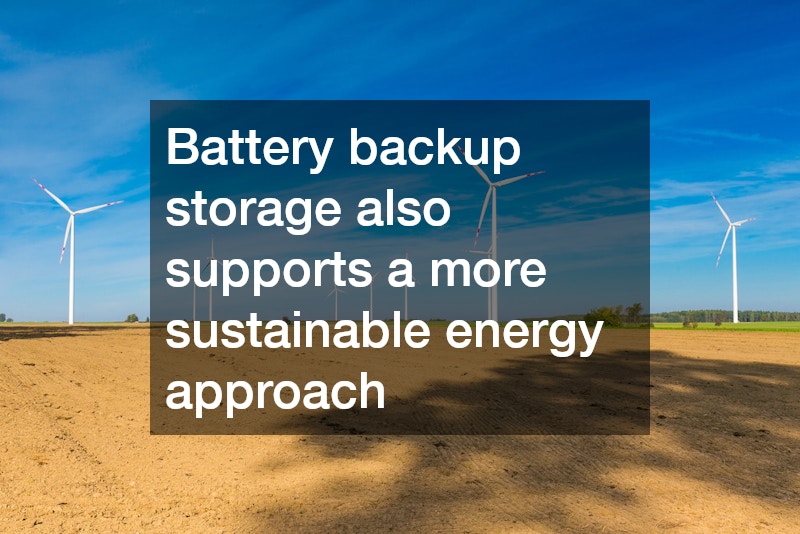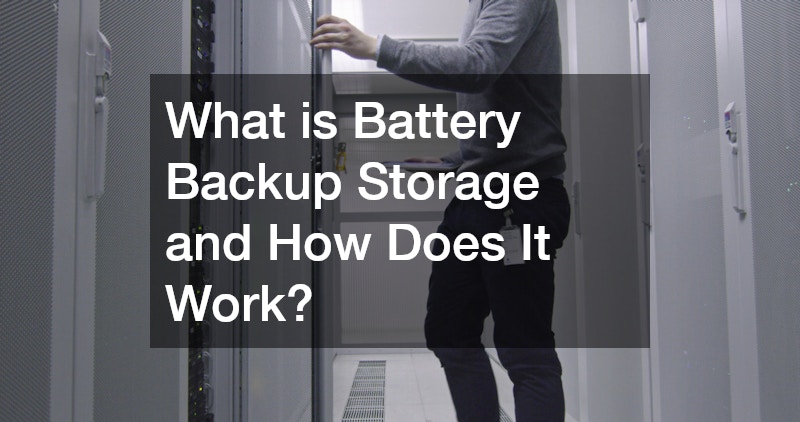
Battery backup storage is an increasingly popular solution for homeowners and businesses looking to maintain power during outages and improve energy efficiency. With the rise of renewable energy and the need for more reliable electricity systems, understanding how battery backup storage works can help you make informed decisions about whether it’s right for your needs.
Understanding Battery Backup Storage
At its core, battery backup storage is a system that stores electricity for later use. Unlike traditional generators, which rely on fuel, battery backup systems store energy either from the main grid or from renewable sources such as solar panels.
This stored energy can then be used during power outages, peak usage times, or when electricity costs are higher.
Battery backup storage offers several benefits beyond emergency power. It provides an opportunity to reduce reliance on the grid, manage energy usage more efficiently, and in some cases, integrate with renewable energy systems to lower overall energy costs.
How Battery Backup Storage Works
The operation of battery backup storage is straightforward but relies on advanced technology. During periods of normal electricity supply, the system charges the battery by drawing energy from the grid or from solar panels. Once fully charged, the battery holds this energy until it’s needed.
When a power outage occurs, the battery automatically kicks in to supply electricity to your home or business. Depending on the system size and energy demand, it can power essential appliances like refrigerators, lights, heating, and communication devices. Some larger systems are capable of running an entire household or commercial building for several hours, providing peace of mind during unexpected interruptions.
Battery backup storage systems often include inverters, which convert stored direct current (DC) electricity into alternating current (AC) electricity, the type used by most appliances. Advanced systems also feature smart monitoring, allowing users to track energy usage, battery charge levels, and performance through a dedicated app or control panel.
Types of Battery Backup Storage
There are several types of battery backup storage systems, each suited to different needs. Lead-acid batteries, traditionally used in backup power, are reliable but tend to have a shorter lifespan and lower energy density. Lithium-ion batteries, on the other hand, are lighter, more efficient, and capable of storing more energy in a smaller footprint.
Some systems are designed specifically for residential use, offering compact, modular designs that can be installed alongside solar panels. Commercial and industrial battery backup storage solutions are larger and built to handle higher loads, often incorporating multiple batteries for greater capacity and redundancy.
Benefits of Battery Backup Storage
One of the main advantages of battery backup storage is the assurance of continuous power. Whether it’s for sensitive electronics, refrigeration, or critical business operations, having stored energy available during outages can prevent costly damage and inconvenience.
In addition, battery backup storage can improve energy efficiency and reduce electricity bills. By storing energy during off-peak hours or from renewable sources, users can avoid peak pricing and manage their consumption more effectively. For homes with solar panels, battery storage maximizes self-consumption, allowing solar energy to be used even when the sun isn’t shining.
Battery backup storage also supports a more sustainable energy approach. By reducing reliance on the grid and integrating renewable energy sources, it can contribute to lower carbon emissions and a more resilient energy system.
Factors to Consider
When considering battery backup storage, it’s important to evaluate your energy needs, system capacity, and installation requirements. The size of the battery should match your typical energy consumption and the appliances you wish to power during an outage. Professional installation ensures safety and optimal performance, and many systems come with warranties and support services.
Cost is another factor to weigh. While battery backup storage systems represent an upfront investment, the long-term benefits of energy savings, increased reliability, and potential integration with renewable energy often make them worthwhile.
Battery backup storage provides a reliable, efficient, and increasingly accessible way to manage energy usage and maintain power during outages. By storing electricity for later use, these systems offer peace of mind, reduce reliance on the grid, and enhance energy efficiency. With multiple types and sizes available, battery backup storage can be tailored to suit residential, commercial, or industrial needs. Whether you are looking to protect essential appliances or integrate renewable energy into your property, understanding how battery backup storage works is the first step toward making an informed and valuable investment.

